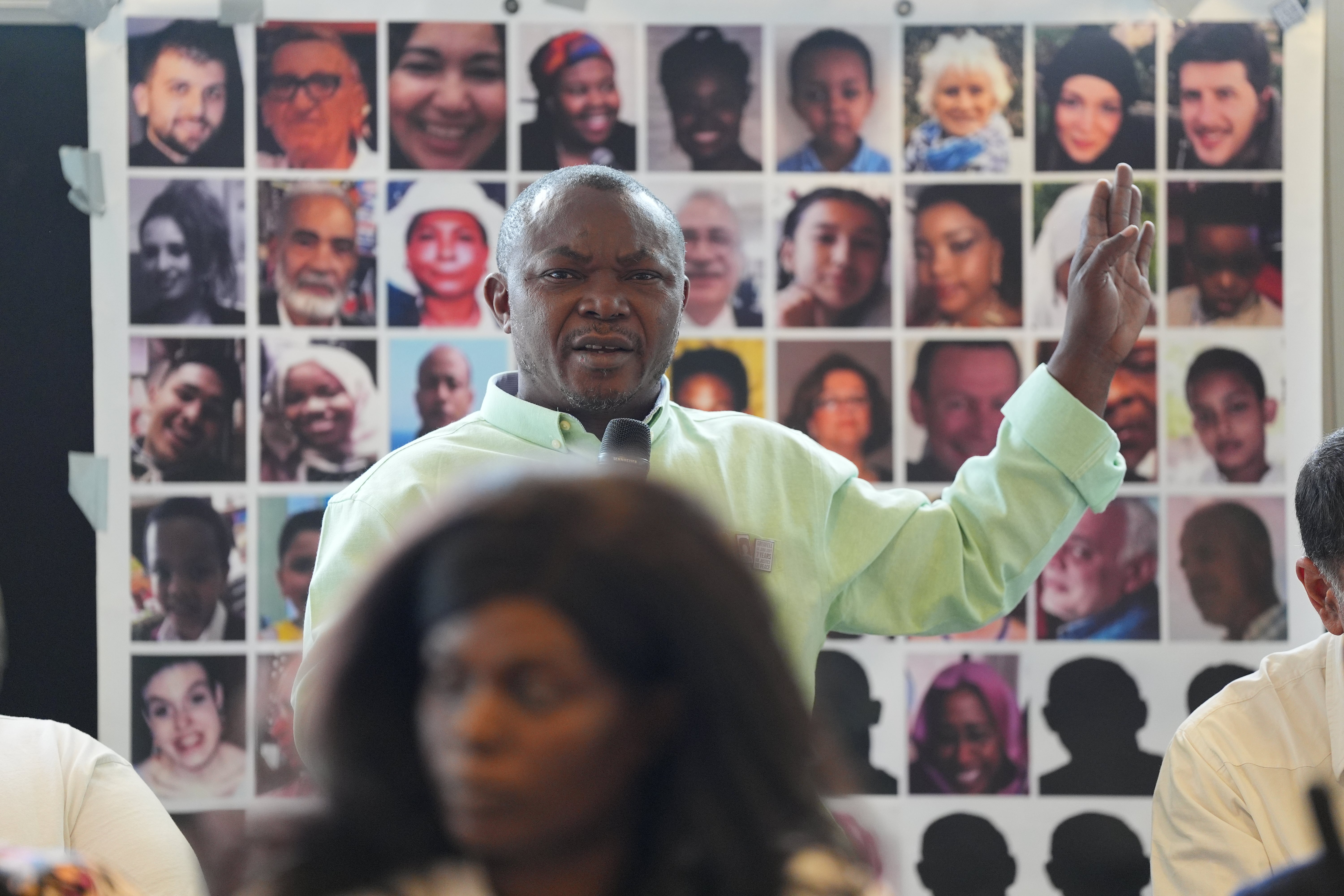Justice can no longer be denied to the Grenfell families
Editorial: The tower block fire that, seven years ago, claimed 72 innocent lives was the culmination of decades of failure and neglect. The failure to deliver appropriate retribution now requires a wartime-style, ‘Action This Day’ response from the government

There is no reason to doubt the sincerity of Angela Rayner when, reflecting upon the final report into the Grenfell disaster, she declares: “What I have read has really angered me, upset me and affected me. Seeing the survivors, and seeing the families of those who lost their loved ones, and then reading what inquiry chairman Sir Martin Moore-Bick has put, is absolutely appalling. The police absolutely have our full support in taking the action they need to take.”
As one of the more “human” figures in frontline politics, Ms Rayner should be respected for her directness and her emotional honesty. And yet it is not being converted into the kind of anger shared by many about the failure to deliver justice to the Grenfell victims and their families.
It was not just a national tragedy but a national disgrace and source of shame, and it is long past time that those responsible – and there are many – should have faced justice and appropriate retribution.
Incompetence, dishonesty and greed were what Sir Martin identified as the forces that put those 72 souls on the path to death – and they cannot be allowed to get away with it. As Ms Rayner freely admits: “We can’t have a situation where justice is delayed, because that is justice denied.”
To be fair to Ms Rayner, she has been in office for two months, whereas a string of her predecessors have failed to either secure justice or make sufficient progress in making residential tower blocks safe since 2017. Previous ministers in charge of housing, such as Michael Gove, Robert Jenrick and Sajid Javid, also face some difficult questions about what they did and did not do, in the aftermath of the disaster.
But this is now Ms Rayner’s opportunity, and solemn responsibility, to do the right things. She is, after all, the deputy prime minister, the secretary for housing and local government, and a power in her own right within her party. She, with the prime minister, has the entire resources of the British state at her disposal, yet the government seems curiously timid about committing them. Ms Rayner, with the home secretary Yvette Cooper and the justice secretary Shabana Mahmood, could and should push the criminal justice system to pursue those culpable much more rapidly.
Equally important, Ms Rayner could and should demonstrate just what being an effective minister can do on behalf of vulnerable people in danger, and force the pace of repair and remediation in the thousands of buildings still covered in flammable cladding – where, inexcusably, residents are at risk of death and injury.
The recent fires in tower blocks in Dagenham and Wembley serve as stark warnings. Even as the Grenfell report was being published, 70 firefighters were called to a fire in a highrise in Catford, southeast London.
If another Grenfell-style inferno takes more lives in the coming months and years, then Ms Rayner’s still-promising political career will surely be brought to a premature end.
Of course, finding the resources to undertake a programme at a much faster speed than Ms Rayner envisages will be difficult to find, and it necessarily takes time to plan and organise. But the urgency and importance of the problem demands a wartime-style response: “Action This Day.”
The government needs to do whatever it takes – if needs be, with sweeping statutory emergency powers to cut through the “web of blame” and make local authorities and builders get on with the job. Questions can be answered and bills settled in due course. Ms Rayner’s remediation plan needs to be speeded up before it is too late.
The most immediate, basic task is to make those tower blocks safe. In the meantime, the Grenfell victims await justice and are rightly distressed by the delays. They expected people to be jailed for the crimes of manslaughter, breaches of vital safety laws, misconduct in public office and much else long before now.
The problems seem to derive from the early decision, under Theresa May’s administration, to prioritise the official public inquiry ahead of criminal proceedings. The idea was that the vast mass of evidence assembled by the inquiry could be passed on to the police as it was collected, and thus build cases against the guilty. “Answers” were placed before “justice”. That was fine in theory – but in practice, it has imposed unconscionable delays, thus denying justice, and it would surely have been possible to pursue criminal investigations in parallel with the inquiry.
Complex and highly technical as many of the issues were, and meticulous as the inquiry’s work has been, the victims’ representatives are right to point out that the inquiry hasn’t really told them anything they didn’t already know about the disaster. They know what happened – they lived through it – and they know why because the tenants had warned about the dangers. They also know who is to blame.
They now expect Ms Rayner and her colleagues to ensure that justice is no longer denied. No more delays. No more excuses.
Join our commenting forum
Join thought-provoking conversations, follow other Independent readers and see their replies
Comments
Bookmark popover
Removed from bookmarks